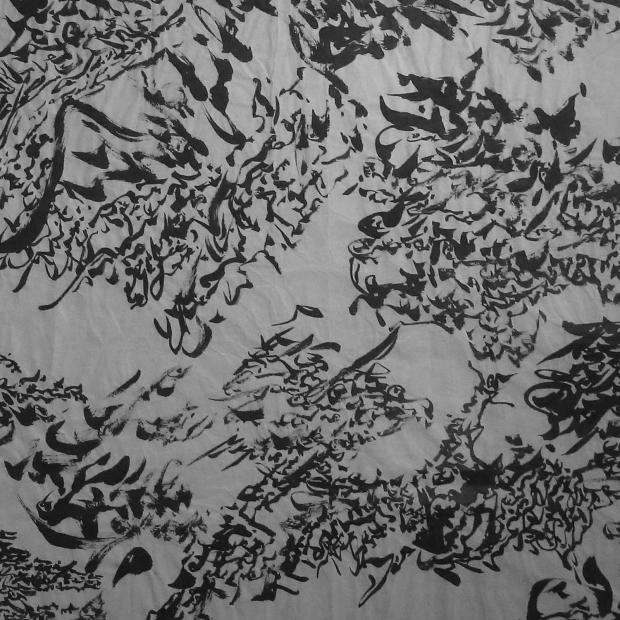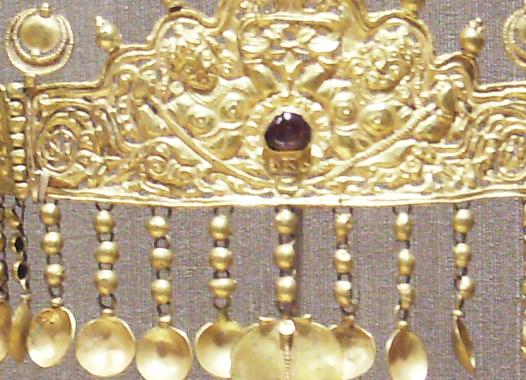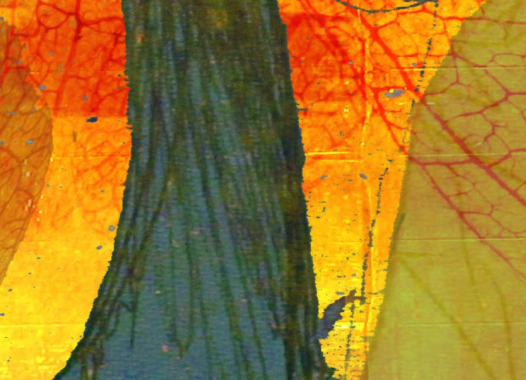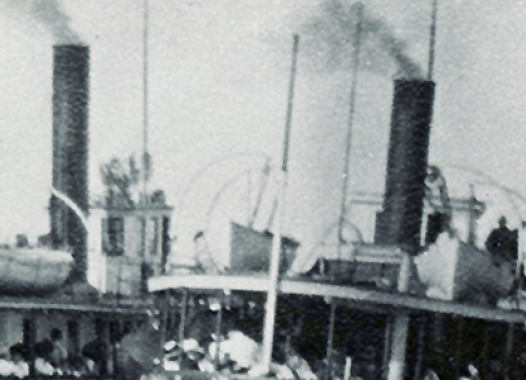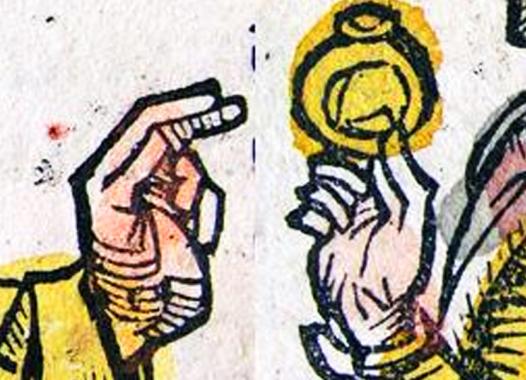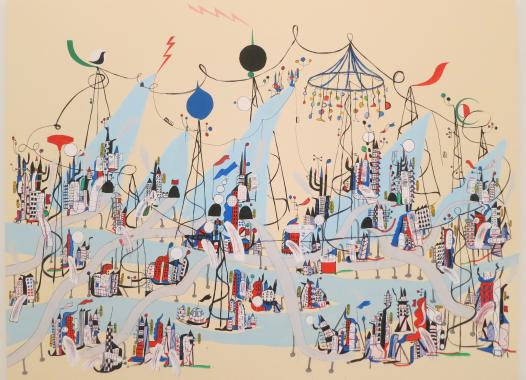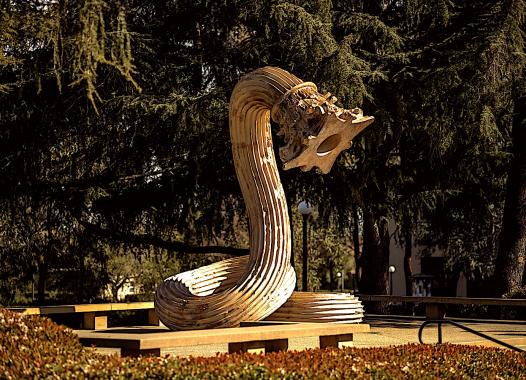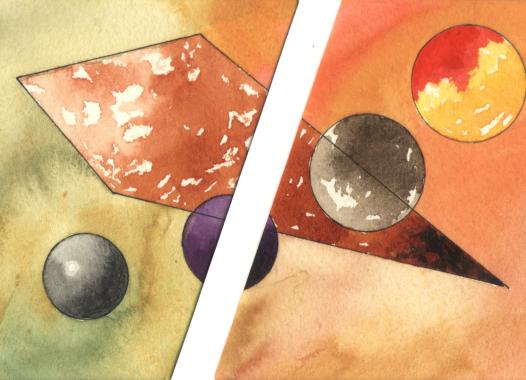
This is the raw transcript of a workshop led by Selim Kuru on 16 March 2017. It was a wonderful conversation, and as Professor Kuru noted at the end, "Once it is transcribed, it will lose all its charm..."
[Introductions by Marie Huber and Burcu Karahan]
[00:05:22] Selim Kuru. I have a very messy fifteen-minute kind of talk maybe or ruminations on certain topics, but I hope these will be conducive to some conversation. I won’t include in the talk too much, but I will talk a lot about Turkish literature, obviously both premodern and modern phases of it, both Pre-Islamic and Islamic, etc. and its relations with Arabic and Persian a lot. I am the director of Persian Studies. I have a deep interest in classical Persian literature obviously, and I can also talk about three different institutional experiences, first at Bogazici University in Turkey. Both my B.A. and my M.A. degree are from there, and I worked as a teaching assistant there and as a research assistant as well. And Harvard, a private university, you might have heard of on the East Coast, and now I am working at the University of Washington. These experiences are really important I think for PATH in the U.S. as different contexts where you can study these languages. But all of these can be conversation points. If you don't care about my talk that I want to share with you it's ok, I won't feel sorry. Let me read you this sentence, which is not very good, but I thought about it as a starting sentence.
[00:07:23] I want to start talking about three monstrous tasks—scholarly, pedagogical, and administrative ramifications that require a combative approach. As a matter of fact, at this point in history, a focus on literature as an object of study is informed by administrative and pedagogical necessities that impinge upon scholarly work.
[00:08:03] And before talking about these three monstrous tasks, in my life they happened to be that way, I want to give you some vision of where I'm coming from. Like a structuring of where PATH can be found at the University of Washington.
[00:08:21] Of course, it is in the College of Arts and Sciences, which is divided into two units, divisions we call them, Humanities and Social Sciences. History is in Social Sciences at the University of Washington, and Humanities first hosts English, which is a monster-like department, very big, like the faculty lines in English are equal to the total of all other humanities departments almost. English is also unique in the sense that it has access to all the student body at the University of Washington through composition classes, and also it has ties to government funding, etc. And it may be natural because we are living in a country where English is accepted to be a standard language, right? But it’s still on the same footing with other departments the largest of which among those humanities division are Asian Languages. This is also kind of natural because we are in the Pacific Northwest, and Seattle has a long history of relations across the Pacific. Then, there is classics which is the oldest department. It has some good number of lines. Then comes Comparative Literature, which is undergoing a huge transformation. In fact, it is turning into a Cinema Studies department, as all new hires are on Cinema Studies, whereas literature professors...well, there are no assistant professors in literature.
[00:10:11] Most faculty are in senior positions, so they are trying to find a way out by changing maybe the name to World Literature or discussing how to incorporate departments other than English—Classics, Asian, Comparative Literature or Scandinavian, Slavic.
[00:10:34] Spanish, interestingly, is not doing so well. And Romance languages, very small again. Now it gets really interesting maybe a bit similar to Asian Studies department because it hosts four languages and their training, and the department is like old PATH languages and the Central Asian Turkic languages. But the situation is that we have three scholars working on the topics related to Arabic: one linguist, one modern literature scholar, with the third one an Islamic philologist. I call him thus because he works on the Qur’an from a linguistic perspective, and then we have very strong Ancient Civilizations program with three specialists of the Hebrew Bible and the Ancient Near East.
[00:11:31] Two of them are philologists, one an archaeologist. Persian has one professor and one lecturer on soft money. Turkish has me, another lecturer on soft money, and then Hebrew has one professor and two part-time really soft money lecturers we try to sustain. And Central Asian has only one lecturer.
[00:11:56] We lost our line to retirement, and it's never returned to the department. It's been two, three years. So this is the shape, like if you need a map, this is the shape. In fact, we need such mappings of universities in the U.S. in order to be able to locate ourselves as PATH. This is the administrative topic to me, and it is beyond monstrous because after being a chair, I realized how accidental our existence is in this universe of universities and higher education and how tricky it is to exist. For this reason, I use the word combative as a keyword for PATH. It is an injuction to exist and to develop beyond the field.
[00:12:47] And with reference to the previous talks that I was able to read a bit: I think PATH is as natural as any category. Natural because at one point, somebody said that the Middle East is not a natural category. Well, what about Europe? Europe is just an appendix of Asia. How natural can it be as a civilizational model for the rest?
[00:13:18] So if I get back to the three monstrous tasks that I talked about—scholarly, pedagogical and administrative ramifications—I'm stressing them because if we're talking about PATH within a university as an institution, these three are very much related, and we can't shrug off any part of it, especially the administrative.
[00:13:48] There is always this sense in the universities from outside and sometimes from inside that a university professor is an individual, working freely. Whenever someone raises this by saying that, oh, I do my work, and I don't care about such things, I'm not here to criticize ABC, I'm not political, and I'm sorry I tell myself: this is not possible. You're political as soon as you accept a position in a university anywhere in the world. It is not only in the US. This is I think is a very important postulate. It may be very generic and true for anyone, but I think especially for PATH, as a provincial part of a university center, let’s say, or as administrative point or for a cosmopolitan department like English. We are provincial not only to the administration but to scholarship as well. Don't forget this has financial, traditional, and bureaucratic reasons. It's not only a good will or bad will kind of story.
[00:15:02] Anyway where was I going with that. Oh, administrative ramifications are as important as scholarly and pedagogical ones. We are always thinking we are individuals. Yes, that brings to mind Althusser’s wonderful book on philosophy and the spontaneous philosophy of scientists, ideology and the spontaneous ideology of scientists, let's say.
[00:15:27] So three monstrous tasks for PATH as well as for other areas in literary studies: first, literary history, the sheer volume of texts and how to deal with them. And this is not only regards literary texts. Secondary texts are pilling up, too. They have a 200-year-old history, as a minimum.
[00:15:56] And then before that there are all these literary writings and theoretical reflections in Persian, Turkish, Arabic, and Hebrew, which we may not take as such even though they offer deep insights and are inescapably entangled. Not only because of the Islamic civilizational context but also because of a geographical context which encouraged mobility since very early. I'm talking about first and second millennium before Christ, let's say, from Asia to Europe. There were all these routes. The Silk Road is the sexiest kind and a direct expression of it.
[00:16:54] But the literary histories of these four languages along with many other minor languages like Armenian, etc. considered within these institutional contexts for us are so linked that it is fascinating to me how some nationalist literary discourses were so successful for some hundred years or so in being so isolated in their discourses, methodologies, and histories, let's say. But this is due to some secondary writing, which imagined these as isolated developments. You think about the first early surveys. They are products of a colonial enterprise or a European story, maybe. These are all debatable, ambiguous. When you use Europe, it's always ambiguous, but what you mean by Europe is very important historically.
[00:18:07] But I'm thinking about Browne’s work or Gibb’s work on Ottoman history, Lane's work on Arabic philology and history. These are like originary texts that enabled nationalist surveys and studies in yet-to-come nations, because when Gibb was writing a history of Ottoman poetry, he was isolating Turkish already, but this was before any public in Turkey was even imagined. It is very important to consider such stories. But then a Republican Turkey had this love and hate relationship with that text because it was tied to the Ottoman history.
[00:18:53] It is important to approach creatively such stories in order to understand the dissolution of the relations among these languages, which never cease to exist but take different forms. A period like pre-World War II is different from post-World War II with respect to relations among PATH.
[00:19:20] So literary history is important. Methodologies is the second monstrous task, how to read, how to understand, how to talk about, how to write on and how to render a representation of PATH as a linked, crossed-destiny story is very important.
[00:19:42] And when we think about secondary works, again, I'm talking about 150 to 200 years of history of secondary studies, there is a huge list, especially in the last two decades, in English. Let's focus more on where we are, in which language we are communicating about these languages. English is still huge. A variety of methodologies comes to the fore for each language in English, and what we like are mostly prosopographical studies in English, for example, or biographical work. We are also lacking in classroom teaching.
[00:20:34] We focus on texts as such, and then some cultural history accompanies them, but there are no signs of literary cultures, whatever you are teaching, premodern or modern literatures. Contexts are foreign to the texts we are providing for students. Generally, the contexts are determined by English departments or Comparative Literature, central discourses on gender, ethnicity, race, you know. Gender is more powerful because it can go back to the pre-modern. Ethnicity, race become more difficult to discuss in those contexts.
[00:21:14] So, when it comes to PATH, there are all these difficulties regarding methodologies and a lack of secondary literature that focuses on these languages as intertwined.
[00:21:26] Different parts of their histories are due to some mobility affinities and imperial legacies which are, of course, different from those of a European empire. It is fascinating to find, for example, the Dunhuang caves in the Taklamakan desert. Discovered in the 19th century, these caves contain the earliest Turkic writings. They are the expression of Buddhism and Nestorian Christianity in different scripts and in many other languages all collected in one library. They are still being processed. Some of them were lost in Germany during the bombing of Dresden, Duesseldorf, etc. because they were taken there to be preserved. So there are all of these ironies, but the methodologies do not reflect such things, such intertwinement...
[00:22:41] Theory is the third monstrous task: how to develop frames of understanding? I mentioned theory in the methodology section and in the literary history section. We still don't appreciate the local, theoretical approaches. They are always rendered as essays or descriptive writings but no one looks for an alternative theoretical understanding. “What is theory?” is an ongoing discussion for critical theorists, but for literary theory, unfortunately, we are not courageous enough to claim that, let's say, 16th century Ottoman biographer Asik Celebi’s introduction to his Tadhkira should be taken as seriously as Ben Johnson’s or Matthew Arnold's introductions or even Walt Whitman’s brilliant, beautiful introduction. And they are never analyzed, never translated, never discussed as a critical approach to literature but just considered as a muqaddima. And there comes of course Ibn Khaldun’s Muqaddima even though its theoretical underlining discourses have been much better studied than any other text in Arabic to my knowledge. It can't live up to being theoretical with its terminology, and, generally, only certain parts of it are considered. There is no good description of the text in one paragraph, of what he really does in this huge text, which is called muqaddima. That is all fascinating to me when I think about it. This is the muqaddima.
[00:24:34] I can't write such a long text in my life with such richness, right.
[00:24:39] This very mobile individual who had been through North Africa, well into the Middle East, etc. is totally neglected except for a few brilliant works, again in English. I am not sure about the Arabic scholarship on him, but Turkish scholarship is very lacking in understanding him, even in attempting to understand Ibn Khaldun. This is just one glaring example.
[00:25:06] Now I want to go back to Eurocentrism from this discussion because theory, again, forces us to go there. I don't need to dwell on it much. We can’t kind of shrug off Eurocentrism as something that we won’t let define our work. Resistance to Eurocentrism, some people think, defines your work as such. I think this is not a question of resistance. First of all, what we are facing today is not Eurocentrism. It is Anglo-Americanism, which has the same mythological foundations as Eurocentrism, but Eurocentrism is over now. We're just looking at a Europe processed through American universities, which was somewhat determined by Horkheimer and Adorno's writings, their critique of the Enlightenment, and then many philologists created the brilliant works in American universities. We are entering an era of Americanization, and if we read Eurocentrism like a ghost, that will be better than treating it as a rock we are constantly running around. No, it is possessing us in different cloaks, different parts, and it takes a lot of attention to react to that.
[00:26:55] Otherwise, you can fall into this trap of fighting windmills, which may be productive. It is entertaining, at least. In the end, I think this sense of provincializing Europe is a phrase which is ambiguous because we are provincial. It says like we're provincial, and we are going to do this to you. It's more like a vengeful discourse. It's not combative enough. But we should understand that we are at the margins administratively, pedagogically.
[00:27:34] We have less students, so how to deal with it, etc. And then scholarly, we are at the margins because we keep harkening back to the theories, which are produced for different contexts and try to tame them... You know, “I read this as well,” kind of a references. I love reading theory, like Foucault, Rancière, etc. It is great minds working on different problems. It isn't my problem, but I love how you deal with your problem, kind of a thing. So my problem shouldn't be secondary to my respect for those texts, and we should understand that the margin or the province is our center. So what is there is more important than thinking that what is in the center makes us provincial. This is more like an administrative, very neoliberal problem, like how can we create demand is our administrative challenge. In a state university, it is very important. I don't know about Stanford, but how many students you get determines how much your department gets financially. So you need to convince students to take these classes, but it ends up being scholarly to some degree because you work at a distance on a topic that may not have Ottoman literature. When somebody, say a cab driver, asks me “What are you doing at the University of Washington?” I feel ashamed to say, “I work on Ottoman poetry.” “And you get money for that? I drive this cab, and I take people from here to here, so what is your reason?” I actually think about it, like why, why do I work on Ottoman poetry?
[00:29:35] It’s a state university in the Pacific Northwest, but this is an important question. This question is not necessarily an existential question. It is as existential as administrative organization of higher education in the US can be. So I think I keep getting back to that point, thinking about my scholarship, teaching, etc. Another important question is: how is it different what I study from other marginal topics? And how are they relevant? Scandinavian literatures, for example. Who cares? Oh, we have many Norwegian people in Seattle, but they don’t care about learning Norwegian anymore. But this is also very important, I think. PATH in comparison to Asia or in relation to Asian, South American Studies, Spanish, etc. because these have also been influential on our languages at different stages of history. How to locate ourselves in relation to them should be a combative endeavor, again, instead of a defense. We don't need border controls to create PATH as a meaningful object of study, but more porous borders, less executive orders, more judges, verdicts...
[00:31:19] On the organization of the study and teaching of PATH, I keep saying we need a combative approach. I don't explain what I mean by that, but such an approach must respond to our students’ need. Because many students come to us and leave heartbroken–or not heartbroken: disappointed. I was interested in Arabic literature, but... So I think combativeness brings us to questions of politicization of state politics, like the politics of literature. I think it is a very important topic. Ranciere’s The Politics of Literature is a fascinating work on literature. The fact that its phases are treated as phenomena intead of national stories is something we need to reflect in our teaching of PATH because, especially in its modern manifestations, these literary cultures and languages have been very politically active until very recently. Even now, there is still some kind of politics. For example, in Turkish literature.
[00:32:48] Constantly, you read Turkish novels about Kurdish problems, Armenian genocide has come to the fore, but the way they are treated demands a really serious critique. How these topics are being marketed and discussed in literary texts is very important. I'm sure you can find examples for other political issues, Persian, Arabic, women and gender, etc. They are all still political. That may not be the politics you would choose for yourself as a scholar. This politicization starts, in fact, with the Russian Revolution in 1917. In these four languages, the major representatives of the early free verse, for example, had something to do with socialism and the Russian Revolution. Moscow University was where Nazim Hikmet, a Turkish modernist poet, was studying before coming back to Turkey and being put into prison. So in each tradition there are iterations of prison literature, for example, or the imperial. When you think about premodern times, like how imperial courts create so much written literature against written folk traditions. These are linguistically and thematically different from each other but they existed within vertical and horizontal relationships. I'm talking about folk literature versus court literature. Let's use these terms to be more illustrative.
[00:34:38] So what is a combative scholarship, to my mind? For example, I’ve never seen a class on the birth of the novel. This was one of my suggested syllabi in 1999 when I was applying for a job at the University of Washington. I ended up teaching classes for three quarters and was unable to develop such a class. But the birth of the novel in Middle Eastern languages was one of my ideal topics to teach. We are used to looking at the same kind of images. We look at the West and at the French novel, mostly, and then at the Russian or the English novel. Arab and Hebrew are not there, nor is Yiddish nor other forms of Jewish literature.
[00:35:31] We refer to the same novels, interestingly. Sometimes, a novel is translated into Armenian and then into Turkish and then into Arabic. These translations may be an ideal start for the study of these languages together. Most of the novels that are being translated are early novels. There are articles about them in the secondary literature, so why not?
[00:36:00] But this is just an idea for a class. The same is true for the novels of the 1950s. In the provinces, our center, there was the village novel phenomenon in Arabic, Turkish, Persian, Hebrew, etc. Such thematic comparison may lure people or stratify some object for Empire studies. Law and court, for example. A class called “The Politics of Love” would be an amazing one to teach for Arabic, Persian, and Turkish. I don’t know about Hebrew, but there is some work on premodern forms from Spain.
[00:36:50] So such classes, I think, at the undergraduate level, are becoming more and more important. For example, in the Near Eastern Languages department, my colleagues Naomi Sokoloff and Samad Alavi are teaching a class on prayer and poetry in Hebrew and Persian. It’s a very popular class, and they read original texts separate from the class with graduate students. It also adds some edge to that. The class became really popular.
[00:37:25] There are some volumes on qasida by Stefan Sperl, ghazal volumes by Angelika Neuwirth. Really amazing beginnings but never became an object of discussion. Like qasida in different cultures, modern and past, two volumes, amazing articles in them, but they don't connect well or discuss or communicate with each other.
[00:37:54] So I want to cut it a bit short, but when it comes to language, I think this is what we need first, even though there are administrative barriers… Burcu created the reading class in Turkish. I don't know about Arabic, if it is being offered elsewhere, but we need such reading classes in PATH languages. I think this would be a great achievement to be able to create a quarter-long kind of intensive reading to teach the grammar, some vocabulary for each language, and it can be done really well if someone is taking Persian, for example, or taking one quarter of a Turkish reading class or an Ottoman Turkish reading class would be great, but this needs some collaboration and serious work to make them successful. You know, yours is still going on, and it's successful.
[00:38:53] We need people like Burcu to work on other languages as well. Yes, I talked about mobility. In my mind, there was Americanization on one the hand and all these languages on the other undergoing parallel transformations, which changed literary languages in different ways. If the Mongolian patterns created in city states initially evolved into certain Empires, Americanization shaped many new nations in the Middle East, in a sense, and transformed them, and we don't know where they are going now.
[00:39:39] There are different rises. So these are scattered. I haven’t promised you a very orderly talk. So you can't blame me for that. But I want to end by recommending to take this discussion on PATH to national conferences, like MESA, for example, but in the form of a workshop rather than a panel of study and especially focusing on administration, pedagogy, such questions. For example, I don't feel so comfortable, even though I have been a chair for a half-year now, talking about administration and PATH because at the University of Washington, I forgot to tell you, there's also the Jackson School of International Studies, which is in the social sciences. The school has the Middle East Center, Jewish Studies Program, which is very strong, and the Central Eurasia Studies Program, which sometimes fall upon each other, as if they were different divisions, different departments. They are centers, they have government money, we don’t need them, they need us to teach, but they always threaten us... So there's always this… This is, for example, one administrative problem to be solved. The history of Middle Eastern Studies has been done to some degree so far but not necessarily the study of literature and language. I’m thinking of Zachary Lockman's book on contending visions of the Middle East and his recent work, the title I forgot, which gives us a very good development of history of Middle East and American universities. So, I would like to end.
[00:41:50] Marie Huber: Well, I start with a completely random point. First of all, thank you so much, really many things that just broke my heart, and also, of course, we need to be aware constantly that our position is so political, and the choices we make, of course, are so political, the way we teach, what we do, how we behave, everything, which is kind of scary. First of all, thank you for these local frames of reference and theory. I think that is something that I've personally observed very much in my work. This dialectics between inside and outside, that the scholarship that is in the languages themselves written by the writers of the languages themselves is not really taken seriously from outside, that these introductions or forewords are sometimes wonderful, but sometimes they are not taken seriously because of some kind of strangely internalized Orientalism, even by the scholars working inside the country, I think, that validates what comes from the outside much more. So there’s not ever a chance of actually developing a kind of, for lack of a better word that comes to my mind, a native theory. I guess the outside is always so overpowering, and that is something that I…
Selim Kuru: That is a really a good question, and I would like to say a bit about this because after coming here, like in Turkey as a scholar, I was really fascinated by the literary networks in Turkey, literary journals, etc. I was reading, like following all the journals, then I came to the US, and suddenly there were no journals, literary journals. I was like really… Like nobody was commenting on literature, like they were all publishing more poems, short stories, poems… and the commentary was like "the great American novel or not." Every decade, there’s one article about this.
[00:44:04] So like that combative nature, again, of the Turkish literary scene. I was like thirty years old when I started my PhD, so I was really embedded in the Turkish national scene, and then every year I lived here I was like falling more away from the Turkish literary scene. As a scholar, I think it harmed me, even though scholarship was always greater here as classical, traditional, philological, they do editing, etc. Very harsh criticism of local scholarship while nobody was considering local scholarship here and its ills… like we don’t need to compare, or comparisons needs to be very shrewd in a sense because you can't judge Turkish scholarship with the same measure that you judge U.S. scholarship. In the U.S., the university institution is really closed, the literary establishment is the university. In Turkey, publication houses, literary journals, they constantly challenge the university, and universities are more marginal to the production or reproduction of literary discourses, let’s say. So in that sense, outside and inside is also really tricky because I grew up reading Sartre in Turkish. I never felt like reading Sartre, his novels or his other literature, etc. was… Of course, there was discussions when I was growing up, do we have a classic? Who are we Turks? Rumi is a classic, but is he Turkish? Of course he is. He was from Balk, but he wrote in Persian, so is he our classic?
[00:46:20] I love ridiculing, weirdly, this discussion. I think it was a sense of being somewhere on the margin, which we are experiencing in different manner, like by discussing, do we have any theoretical writing? Everything is lacking. Being marginal, being provincial is like that. I think always about cities, like New York is an English department, DC is administration, and we are in another city in the US. As Middle Eastern literature, we are like, oh English has money, English has students, English has this many faculty lines, but we can’t be English, we can’t go to New York. But now English and Comparative Literature are opening up, post-colonial studies are in English departments, not in Area Studies because CompLit is accepting more and more different areas in other places, not at the University of Washington, but at the University of Washington, an Iranian cinema specialist can be a Complit professor now. Which is it, invading the departments or being absorbed by them? But I think we are at the point, a threshold where combativeness is important. I feel like I need to invite that person as soon as she comes to CompLit to the Near East to give a talk to us and then force her to teach a class through us or cross-list us. So these are little tactics, but just to establish a communication is sometimes so difficult, to reach out to an English professor who is teaching gender in India, colonial India, let’s say, how to communicate with this person. It is very difficult to establish some intellectual conversation. Forget about it. My own faculty sometimes, it takes so much energy, like just to… We were discussing world literature at the CompLit department…
[00:48:34] In fact, most of our professors are adjuncts at CompLit, so they're discussing this name-change possibility, and somebody was like, “So where are we going with this?” We were talking, discussing, it was a wonderful meeting. I said, “Do we need to go somewhere? We are here, and we're talking to each other.” Even if you don't change the name of the department, this is something of intellectual satisfaction to me, and we are also considering administrative difficulties. We are creating this worklist for ourselves. This is important for me.
[00:49:18] So going back to the outside, inside, it is really a spatial question. Again, I feel distanced from what's going on in Turkey, but I shouldn't in this environment with social media and livestream conferences from Turkey, but we don’t have time. What are we supposed to do? So many things to be done.
[00:49:45] Ali Karamustafa: Yeah, and that last note. I kind of thought, I mean I’m in the history department, but last year, I spent some time in Turkey and Iran doing research, and it felt like there was a huge wealth of scholars working on things everywhere. I mean, definitely in Iran, which is maybe more isolated from the U.S. than Turkey, at least. But in Turkey as well, I mean the problem was that the national frameworks are quite strong. That's why, because I was interested in kind of connections in between, and in the caucuses it was kind of hard, but I was very pleasantly surprised, and I felt that the gulf between scholars here who work on those regions and what's going on in those countries now might actually be bigger or worth addressing in a serious way than kind of looking at the difference between English literature and Middle Eastern literature or Ottoman history and European history. We have these parallel discussions in the history department, obviously here. That's just something to keep in mind. It’s something about these fields that there is a constant inflow of people from those regions who, like you, were and probably still sustain those connections with whatever, literary journals, universities, professors. I came away not feeling like, oh, we're missing all this theory, and just for all this… So much theory and all of these languages and Russian, Persian, Turkish… I mean yes, some of it is not good, obviously, but that’s true for everything.
[00:51:32] Selim Kuru: So one of my ideal works came out in Turkish, and it was an edited volume of all things. It is like this… defining Istanbul as a place of encounter of various languages and literatures in late nineteenth century. Fatih Altug and Fatih Uslu edited a volume together, and they have translated some articles from Strauss and many others about, you know, from Afghani to Istanbul to this Arab author to Armenian publications and such and such. So spatiality, I skipped those parts in my talk, is very important, as important as mobility because spatial coordinates make mobility visible. When we talk about either folk literature or more written forms of literature, we can understand these relations only through identifying networks.
[00:52:35] When I look at Marv and Konya and Kurshehir and like Baghdad, Damascus in the 10th, 11th, 13th, 14th centuries, I see in those cities such local developments, which define what comes after, to some degree, at least preserved. Or 10th, 11th centuries… It was a revelation for me. I discovered that when the first Shahnahmeh came out in modern Persian, Diwan Lugat-e Turk, a Turkish-Arabic dictionary, was coming out at the same time, like what is going on here? It is followed by a Turkish Masnavi in Syriac script, an Islamic text, not an Arabic text, and you have a copy of it in Arabic script. Like what's going on here? Like what kind of affinities, encounters are accounting for it? We need to come up with more interesting questions for more representative texts, which will also end up being more readable and communicable, not only better representations of what's going on. A more communicable kind of… Does that make sense?
[00:53:59] Ali Karamustafa: Yeah, so you’re talking about texts that also… Sort of ways of doing textual studies that can bring to light those encounters…
[00:54:16] Selim Kuru: Yes, texts as signs of… beyond their content, which is like… Content becomes more important when you look beyond the content because, why the text, why the story in that context would be the second question, then we can have better studies and also consider the fact that European textual studies… One work may have ten, fifteen works about it in PATH, except for the Shahnahmeh.
[00:54:50] Even Maqama doesn’t have enough commentary on that, like such a literary event for Arabic, you know, as a written text. It is a major transformation about narrative, in my opinion.
[00:55:13] Aisha Shahid Ghani: It also seems that there’s no dearth of theory. There’s not a lack of it when you’re actually looking at the literatures. It’s actually hard to teach that material that has a local existence, a vibrant local existence, but then to kind of transport that and then present them in classes, that… Or in your case, the project you’re suggesting seems to be even more creative, which is like, how can we think beyond the text to draw new genealogies, like literary genealogies that can tell us more about something. It sounds fantastic, and yet the problem of this and the Orientalism at the heart of this seems to be that, as people who… I teach on Islam, for example. You’re called upon in specific ways by the American institution, and so it made sense to me when you said that there’s a class on love and poetry that is something that people are interested in. In some ways, it’s like, okay, love and poetry in Arabic literature… So there’s a counter-narrative about Arabs, Islam or Orientalist notion of that region as… love is not there, so you’re inserting it and challenging that grand narrative, or like whatever it is that is in some way a liberal way of entering into that literature… I’m not against it, but I’m just saying that the demand for that type of thing is also in some ways symptomatic of Orientalism.
[00:56:56] Selim Kuru: In a way, if you disengage love from its politics… What I said was politics of love in PATH, in these four languages because why? Why have there been so many ghazals? In European history, there is not like one-tenth of the amount of poetry that was produced in Arabic, Persian, Turkish, Urdu, Hebrew in the same vein, pseudo-mystical, or mystical. Why aren't there? I started counting. Forties, fifties, I was writing that article for Cambridge, and I was like what’s going on here? Only the printed diwans between 1450 and 1500, I was just curious. I forget the number now. It was so many. Only the ones that remained in the form of a poetry collection by one poet, forget about the late muwazin and the collections as… It was such a big number. It was like more than the Elizabethan sonnets total. We don’t count in PATH.
[00:58:19] So love… How you present it, when you present it as a problem, not a fact, because you can write a book saying that, okay, homosexuality in the premodern world… You can do an amazing survey and end up coming up with only three prototypes of people represented in poetry without saying why.
[00:58:47] Like why was it? And then you and your book, oh and then modernity came, then… All your work, all your research, all these brilliant findings in Arabic literature in four-hundred years… Why you should have to do four-hundred years for one book? Like it wouldn’t be allowed in any discipline in European studies. Nobody would let you do it. But you have the powers of reading all these works, which is so respectful, but then all that reading is just to identify an aesthete, an effete, and a scholar, I guess. So three kinds of people wrote about homosexuality in poetry, and those three types were, ok, one was a moral crook, one was just feminine and into it, and one was a scholar, mystical, etc.
So, the questions need to be better, like you should ask…
[00:59:54] I read that book. I didn't have any idea about the sources that were used. I just realized that there are these huge sources of collections under Ottoman rule in Arab lands. But what were they? Why were they kept? These are love poetry, yes. But why so many are kept and who deferred for what to these ontologies? Unless we ask such questions, then, you’re right, we are becoming Orientalistic because we are looking at… having a defensive strike, like they weren’t homosexuals, they were just literary types. So what?
[01:00:42] Do you mean that homosexuals didn't exist? I’m sorry, it existed under the Ottomans. So what? But it wasn't like, love didn't mean homosexuality, like loving a boy might have had several levels of realization, but the real question is how and why in a supposedly Sharia law-ruled system, how was it allowed? Of course, there is homosexuality. Of course, there is love poetry, but how? Like unless you ask this question, then don't enter that territory. And I am not able to because it is a very difficult question. I.
[01:01:18] Aisha Shahid Ghani: That’s the thing. It’s not that one doesn’t want to. It’s almost as if the way that you're called upon is so that you’re asked to.
[01:01:28] Selim Kuru: It is the women question, for example, in modern times, women in Islam. Like in Iran. Women in Iran. Women in Turkey. Like how can you address that?
[01:01:38] Aisha Shahid Ghani: Yes, it is a kind of a counter. There’s something against… There’s a backdrop against which you’re being called upon that you can’t get out of, or at least that seems to be the way in which you are invited into.
[01:01:46] Selim Kuru: Yeah, I understand, and you are like… This is a very important problem… Not even a problem. This is a fact that you are invited to give a talk, speak for a people, speak for a literature instead of speaking about a topic or present a problem. You are constantly inquired for an answer or a presentation. You see what I mean? What I’m saying is that in no other literary studies, in French, for example, there is no such necessity. Everybody is, you know, after a good question for a limited research. A book on homoeroticism in Arabic for all ages, either the one Thomas Bauer did or the one Khalid El-Rouayheb did… They are vast, and they are brilliant works, but they are so defensive. Like stop being defensive.
[01:03:00] You know that defensiveness is my problem. I am proposing combativeness against defensiveness, you know. Look, there’s homosexual poetry in Islam but why? I want to start with this question and with an answer by saying I’m looking at this and that for that reason because I am trying to answer this question, but I can't do it for 400 years, I am a person. So I am looking at this 50 years, and I want to look at especially this incident because it is indicative. Like such thinking and problematizing, I think, is lacking because we need to give it all. We feel like we need to start from the A to get to the Z. But there are so many letters in between. You’ll fall short of breath. But I agree with you. I’m not combatting you.
[01:04:00] Aisha Shahid Ghani: No, no, I actually completely agree with you as well, and I know that the what you suggest is possible, but there’s also a certain, like as much as it’s annoying to be called upon in that way, you also can’t just shrug that burden, right.
[01:04:44] Selim Kuru: No. How to reply is important. That is what I’m trying to say.
Aisha Shahid Ghani: And what I love about what you said is that to move beyond what I see as a kind of inventory… So you think that Arabic literature doesn’t show this, so let me show you, there’s homosexuality in this and this. And instead of just an inventory, you actually ask the why and how and treat it as a kind of domain.
Selim Kuru: To create our objects, better, in a sense. Unfortunately, I haven't had enough training in theory. I’m a bad reader of theoretical works. I love reading theory, but, you know, because there is a language that seems to lure people working on PATH. In fact, they shouldn't have felt responsible for using… Like we can use a simpler language to tell, you know, more subtle and direct language to talk about the issues. For that reason, I said politics of love, not love. Like how it worked, like why a sixty-year-old poet kept writing the same ghazal while he’s being a vizier in the court.
[01:05:36] Why? I don't have an answer. I keep thinking about it. I tried to read history, and as I read to find an answer for that question or mechanisms of it. When did he write? Under what conditions? Was he using a tablet, or was he writing on his knee? How did he compile a book of his own poems? Why would he do that? This is my interest. So I’m looking at the first fifty years of the 16th century. There is an interesting moment there in Istanbul. This is a closer time. It would have been much more difficult to think about an Abbasi poet in a similar context, maybe. But such things, like I apologize for my lack of theoretical thinking because my language runs short to express my deep and very meaningful… I was making fun of myself for the recording
[01:06:46] Burcak Keskin Kozat: May I push you on the margins question? So it’s a point of view so that all this politics makes sense beyond the disciplinary lines, as well. I think what you’re saying about the margins and provincialism is great, and I was thinking about two different faces of the problem, of overcoming it, in a way encouraged by you reaching out to this colleague who got hired in an English department to talk about the gender concept…
[01:07:21] Selim Kuru: It was a totally hypothetical… It didn’t happen.
[01:07:27] Burcak Keskin Kozat: Yeah, but in this hypothetical case that really shows the possibilities of connection between different subfields… So PATH reaching out to other subfields on campus within Comparative Literature, within the DLCL, but also outside of the DLCL to create some form of conversation on the conceptual questions. It would be really informative. But also outside of the discipline of Comparative Literature, outside, say, for instance, of history, history reaching out to literature. Do we see Comparative Literature reaching out to history? I mean, there is a natural link there, especially given the Middle Eastern Studies. When we go to MESA, history is always there, but do you reach out to anthropology as much as anthropology is reaching out to you? So there is one disciplinary question of thinking about these margins administratively and making alliances with other units on campus, which may or may not be interested in supporting us. The other one is coursework, like within the margins, and you mentioned this with the Armenians or Jews in Turkish literature and the nationalism of the discourse and what literature is. What are the marginalized identities that may or may not be existing in these literary fields, which may in and of themselves deprovincialize Turkish literatures or PATH literatures? With Armenian or Central Asian languages reaching to the Turkish literature through that route, it's also very novel, and doing a workshop at MESA. I think you should push the ACLA…
[01:09:32] Selim Kuru: Yes, but I think MESA is a better ground for the first step because it is also important for PATH to communicate its message to, as you said, a wider social science environment as literature, a workshop on literature, which is very rare at MESA except for some classical Arabic literature workshops, which don't really approach the question but already are a statement kind of thing, which is really useful but, to go with the very well-formulated question, of course ACLA is very important. MLA is even more important.
[01:10:20] Burcak Keskin Kozat: And I was thinking Alexander’s point on the difficulty of inserting Arabic Literature into ACLA, right? So I mean, there are such disciplinary weights to administratively come up with linkages which may overcome funding…
[01:10:41] Selim Kuru: And also, there are a lot of issues, and you try to overcome disciplinary boundaries. Even within my department, if I teach a class on love in Islamic literature, some people may be offended because I’m stepping over their toes. There are a lot of issues. Another issue, like, I am working on an article.
[01:11:07] It is in fact commissioned against all my resistance. Two friends of mine are editing a volume on early modern Istanbul. It's a huge volume with lots of articles, 24, 25 articles of eight-thousand-word limit each. And they wanted me to write on the man, the Instanbulite man. I was like give me the literature. I don’t want to write about man. They were like, oh, you will do great, great. I started thinking like, Istanbulite man, you know, it is early modern so like the 19th century…
[01:11:46] But I am looking at like the 16th century. I want to do this focused thing instead of accounting for all the Ottoman man because they want Istanbul. So, my problem was first, like, when it comes to gender, masculinity is mostly a function of feminist theory and of discourses of victimization or suppression of marginal groups. It is a function. It never looks at man as a, you know… It looks at society as a hierarchical organization. You may say, when you talk about that, you're talking about a man in the premodern environment, right, because society is the man. But when you look at the city, I am talking to people from the geography department and asking them like how would you describe Seattle, or the man of Seattle in the 1960s until today, for example. They’re like, hmm, well, I'll go there, I’d do this, ethnographic research, topographic research, etc. But it is a constant problem. I missed two deadlines, and I keep telling them, okay, if you want me to write it, you will wait because I don't want to do a rushed job, but also, against all my resistance, I am now looking differently at my sources because yes, men ruled over the city, but what was the city? So I started… I got there from writing this inter-disciplinarily, and even though I am an literature person, I was asked to write an account of history in the sense of the men of Ottoman Istanbul.
[01:13:38] And what I look at is an impossibility. Early Modern can be from 16th to 18th centuries. So much changed in the city, but certain spaces always remain masculine. Not allowed, at least like barracks, military barracks like madrese.
[01:14:02] So my article goes towards a spatial description of Istanbul, which defines certain manhood, let’s say, instead of an Istanbulite man and then all these non-Muslim men in the market place where women can appear. So it turned into a… It’s interesting how much texts reflect, literature reflects at that time, all these questions… So interdisciplinarity provides a lot, and I am talking to geography professors. I talked to Gender Studies people. In doesn’t help much, unfortunately. This kind of question doesn't appear much. You know, people describe England in the 17th century, women in England, for example. But it is very many generalizations about restriction. Law becomes the core source. But this is only a part of a work, which I tried to make sensible and meaningful in the end in eight-thousand words. This illustrates what I was telling you about, how to ask the question.
[01:15:33] Burcak Keskin Kozat: I hear you on that, and speaking from the Islamic Studies perspective, we’re also in the same sort of… You have the advantage of… but also challenges of being under departmental, bureaucratic limits, you know. So similar problems.
[01:15:59] Selim Kuru: Interesting, yeah. These problems, also, if you know someone, like I am really interested in the topographical study of the university, you know like a topographical study, I mean what falls into which place and all the different forces of… Because universities always uses excuses when you go to them for a line, they say, like, oh this is not the same budget. I’m like, what do you mean? They’re like, oh this budget is only for… Who decides on it? Oh, the administrators. Why can’t you talk to the administrators? Oh, because administration needs to go to the state. What about the federal funds? Like, it is some kind of a chaos that holds the whole order. It is fascinating to me, and this is what I take part in as a theater.
[01:17:00] Marie Huber: I actually have many things that are not entirely connected or not at all connected. Well, not entirely connected to what you just said. One is a question I have had about teaching. This very practical thing is the issue of language and text because the course I taught last year, I had an idea for the course, what I wanted to talk about in “Love and Negativity in Medieval Persian Mysticism,” but I ended up not being able to talk about certain authors because their texts were not available in translation. Their translations were so bad that I would not have been able to use them. So I find that I’m confronted with that over and over again.
[01:17:53] I find that the image I'm able to convey to my students is like a jigsaw puzzle out of which ninety percent of the pieces are missing. And that is purely because of the lack of translation that affects our languages more than the canonical languages, much, much more, and so language training is so, so central because we do not have any choice because the translations are not there. So what to do about that? That is a huge question for me.
[01:18:29] Selim Kuru: This was an amazing, like, I was an idealist when I got my job, like in 1999, and the first thing I did was to do a huge library search while teaching eight classes and finishing my dissertation in my first year. Yes, I did this huge search of all the translated texts into English, from oldest down, and it's still somewhere in the spaces. It’s just floating. I made it because I was feeling like, oh, this is incomplete, this is incomplete. Then I came to a point. When I teach Turkish literature, I start with my experience now.
[01:19:10] Like how I came to Turkish literature as a young person and what I was reading, which literary journals, etc. I realized there are those who are really interested in this kind of personal experience with literature to fill the gaps and then choice of texts, and then I was calm because then I can share the texts that I love.
[01:19:42] Sorry, Orhan. I like the man and his stories as well but not the novels. He knows that as well.
Burcak Keskin Kozat: What do you not like about his novels?
[01:19:59] Selim Kuru: I don't like his, like, he lacks economy. He doesn't have a good language use. What makes literature for me is something more than the story, otherwise. I love orally communicated stories, as well, but if I am reading, there is some value I expect from the novels. And I don't like closed-ended novels, like the author knows everything and tells me it straight. I like more investigative, like Ehsan Ortemer? for example, a Turkish who never reveals his intent. He gets you into a maze of literary adventures. Such things are more interesting to me, but teaching what you don't like as well as what you like while contextualizing them as you came to realize what were the literary networks in Republican Turkey, how they developed language forms, etc. So, writing lectures are an old practice.
[01:21:04] We now more rely on texts and discussions of the text than going there and talking, telling the students, you know, because there is a background and very rightful background, like lectures were repetitive, and they were like… They don't have to be like that. Lectures can be now personal lectures about literature, especially with undergrads. I think they need that because making a story of the literature they don't know anything about as a personal experience communicates better, in a sense.
[01:21:38] And I always enjoy talking to my colleagues who grew up different. You know, my Iranian colleague, Ahmad Karimi Haqqaq. I remember a conversation about his getting to know about which literary figure… Oh, you read Sartre, as well, oh... So these kind of interesting personal stories need to be compiled there, as well, because our stories are a part of this, becoming a part of this literary adventure because literature is not innocent of universities anymore. Like, authors are also, maybe learned nowadays most… So that Turkish literature is dominated by Kurdish or Armenian genocide… They’re responding to something, right?
[01:22:44] I mean, I don’t know if this answers your question about how to fill the gap. It is not about texts, in that sense, but how to reveal some experience with these texts to…
[01:22:57] Marie Huber: And sometimes writers end up reading too much experience because I think, in the end, it should be the text that speaks. You should be able to present a text in such a way that it speaks, and I prefer to present a text and to take myself out, especially when I'm talking about medieval texts. That is different from a modern text. And here, the language is so important, and here, a different topic also comes in. I find it sometimes, and that's not a general thing, but sometimes I find that students taking a class are taking it for certain reasons to learn more about the background, to learn more about Islam because they have certain codes that I think a student taking a course on French literature might not necessarily have. And I do not sometimes know how to answer those codes. I think it is the texts themselves that could undo the codes better than anything, and sometimes I just wish that these codes could be undone in such a way as to make the students want to delve into the language that is in the end the origin, that is at the origins of these texts. And the sheer materiality of the language. Translation loses that. It becomes something ethereal that is about ideas, that can be instrumentalized for extracting some content or some information, whereas the text itself, the original text is much more than information or content. It is language. It is the play. It is the certain imponderable materiality that you can touch, that has a music, that has all the associations that you hear when you’re a native speaker. The text itself makes you think of its history. When you see a text, it opens up a little window of literary history, and that you do not get through a translation. And so how to undo the codes in translation?
[01:25:22] Selim Kuru: But I mean, if you are teaching a class in translation, you already agree about that, that you’re teaching translated texts, not the originals. One inspiration for me was Aron Aji, who translated one of the most fickle Turkish authors to translate, Bilge Karasu. I admire his work and his language.
[01:25:45] He was a purist. He tried not to use any Persian or Arabic, but he created some wonderful Turkish on its own right. But he was trying to explain a concept, Karasu created, about translation because he was also a teacher of creative writing. He passed away decades ago. And he was just… He told the actual Turkish phrase and then he enacted it, repeating it again. And you know, he was speaking to an English-speaking audience, but he was very comfortable in uttering Turkish phrases. This was kind of, almost seductive.
[01:26:39] And it was like, I never thought about it before, watching him, that I can, in a translated modern Turkish class, employ…
[01:26:48] And then I started slowly reading phrases from the original texts that are… I taught, for example, for the most impact, this sentence... Or something like... the last sentence of a very famous novel.
[01:27:15] Ali Karamustafa: I mean, I think it’s a bigger issue to… I mean… Maybe it's a Stanford thing, or maybe a lot of our departments, I don't know about literature, but it's not, there’s not the emphasis on language learning, and that kind of rigor is considered very old fashioned or something, but I think it’s a big problem. Because, you know, people have to spend their time here, you know, sometimes they take language classes, but that's also difficult.
[01:27:50] Aisha Shahid Ghani: I was just going to add to that, but in anthropology, we do that. We then might become privy to a text. We then use that data for a particular kind of anthropological project. It’s so different from what someone in literature might do as kind of critiquing and sizing up the text on its own terms. It’s very different. So then, you have this random citation and all of a sudden material that hasn’t been translated, but it’s being operationalized for a particular kind of political project in some tangential way. Like gestures at this literature exist but it’s not as serious of an engagement with the object. I don’t know if history could get past that.
[01:28:37] Selim Kuru: I found students surprisingly cooperative, for example, Karasou has a novel, Death in Troy. It was published in 1950, and the main character is homosexual, and there is a homosexual scene, but it is a very thick, existential text, and I had some sixteen students in that class, and they read it, and we had some of the best discussions in that group. And then I realized they had no clue that this was the 1950s, and I told them, like how many American novels with homosexuality were written in 1950s? Four, five, six? Like in Turkey there was one, and there's this video I mentioned, contemporary review of the text, which talks about homosexuality but praises the novel. So what do you make about it? Like Turkey in the 1950s? Many Turkish readers are not aware, like, they don't think like, oh, there is a boat. Next to the boat, there is love-making between two teenage boys, and one of them continues to be a loner homosexual. It’s a very rich text that I recommend. It's a wonderful novel.
[01:30:10] But, on the other hand, in the Turkish literary surveys, I haven't seen much of a discussion on that phenomena, even in its local sense when there's a lot of production about gender relations, homosexuality, its history, etc. I can't imagine, like this guy survived as a homosexual in Ankara in a university setting. You know, writing such texts about homosexual encounters throughout his life while teaching creative writing. So what does this say about Turkey as a country where homosexuality is being suppressed otherwise? What is suppression, then? How does it work?… If you want to talk about translation and lacking images… No picture will be complete.
[01:31:14] Burcu Karahan: But this is for, like, mainly undergraduates you’re talking about. What about graduate students and languages? How do you do that, like for PATH languages? It’s many years for them to…
[01:31:38] Selim Kuru: I work mainly with Turkish students. I had only one American student.
Burcu Karahan: So she learned Turkish?
Selim Kuru: Yes. And she knows some Arabic, and she’s still learning Turkish. I mean, I am still learning Turkish. Learning a language is not a final project. There’s no end to it. This is very important for students to realize when they… especially for that reason, I'm saying reading classes are a good start. They are really important because they're more grammar-oriented. They provide a basis and some understanding of a text, they are more important than we can appreciate. Learning an alphabet, learning a grammar, follow some text slowly. I think it is very important, and this may be a goal, a crazy goal, to create those reading classes with more standardized syllabi. I think it would be a great beginning.
[01:32:59] We may not know where to go in the end but if they lose some students into language classes per se, and if they know Turkish or Persian, taking the reading classes as I mentioned will give them some leverage. But I think we need to do better language classes for universities because the devices…
[01:34:05] It is important, like when we talk about PATH, you're talking about non-standardized language training in the US, and this is true for each language, P-A-T-H. Even Arabic, which is the best, I think. Arabic is the best established language among the PATH. But even that needs a lot of thinking, and it is being done but it's slowing down… There was much more energy for Arabic.
[01:34:36] You know better. I’m sorry, but I mean, I was following enviously the Al-Kitaab series, against all the criticism around it. I think it was standardized, it established proficiency levels, and it got connected with different programs, so it became like, Arabic is being taught better, but it still needs further discussion, but when it comes to Persian, Turkish, Hebrew, we lack a standard textbook. Like we don't have any proficiency. We have some, I know, but what does it mean… What we are talking about.
[01:35:21] If we first address these questions and then start thinking about not having students it is, in a sense, because we still have some chances to discuss these, some government funding, etc. We don't know what's going to happen in five years, but while we have time, it is important to encourage people who are interested in language to take part in our departments, to make them homes for them. Create homes for languages, second language training scholars, to let them grow.
[01:36:06] Alexander Key: The reading course that you were talking about. I don't know if it was my imaginative leap, but are we thinking of a course in which the texts are in the original and a single course in which there are multiple languages?
Selim Kuru: No, I was talking about… Burcu teaches a class as reading language. Turkish for reading.
Burcu Karahan: Turkish for reading. There’s no speaking or writing or listening.
Alexander Key: Because what I was thinking you might be thinking was if in a reading course that’s just for reading, you know, like reading German or, you know, the idea is just that you learn how to read it... With these four languages, like, what would happen if you advertise the course and you said you needed… the prerequisite was Arabic. And then you made them read Persian.
Selim Kuru: Why would you do that? No, what I was thinking was…. For example, there’s a student who has been working on Arabic… He would benefit from a Persian reading class. It is in Persian. Like, learning Persian just for reading, just to get through the grammar, vocabulary-building, etc. not to pronounce it, not to listen to it, like, just reading.
[01:37:38] And if we have one class for each language, this does not only benefit people in the field but also, it may be attractive for science people, etc. just to get a sense of the language, but they need to be done really well. You know, French has the best books, I think, French for reading. I don't like the German ones. There are a few books comparable for English speakers to learn German or French without taking a language class basically, just for reading.
[01:38:13] Alexander Key: If the idea is to teach… then take someone who knows Arabic and teach them Persian for reading, or take someone who knows Persian and teach them Arabic, or take someone who knows Persian and teach them Turkish for reading…
[01:38:27] Just thinking out of the box, as it were, what would stop you from doing two in the same class?
[01:38:37] Selim Kuru: Both Arabic and Persian?
[01:38:39] Alexander Key: Yeah, like having a course in which you intermix.
[01:38:45] Selim Kuru: Yeah, I mean the best way, in that sense, would be to identify the shared vocabulary, first. It would work for premodern better than the modern period, but still, it would initiate or facilitate easier learning of modern languages, as well, because some vocabulary persists, changing its meaning, etc. But that would have been, in fact, brilliant, to think about the core vocabulary. Maybe Hebrew would be a bit difficult, but teaching the alphabet at least, so you're teaching two alphabets, on top of Latin, Arabic script, etc. But that would have been great, like to identify that core vocabulary which would be the chronic vocabulary, more or less, with its adventures through time, which is not a huge task to develop, but yeah, it may be great.
[01:39:42] It could be a self-standing class that would appeal to anyone who is interested in…
Alexander Key: The end point is that you only get through a sentence, like a sentence that takes you a day. You're not getting any kind of… You’re just getting a…
[01:40:01] Selim Kuru: I mean, the interesting thing…
Ali Karamustafa: Like, I mean you're focusing on words. I think it’s great.
[01:40:07] Selim Kuru: It is great, and also, it can be done in ten weeks, at least basic grammatical difference can be incorporated into it, like how the position of the subject changes from language to language or the object or the verb, you know. Just teaching some syntactical patterns with some cultural references… It will be an attractive class.
[01:40:35] But I think it needs collaboration, serious collaboration not only within the university but across the board because it’s almost a historical linguistics project kind of a thing, which is very important, which is a dying thing, like historical linguistics, especially, along with philology. Nobody notices it, but it is dying also, it was so high times the experience in the 50s, 60s... Now, nothing is being done, and I'm sure there's some lists existing, at least through poetry, like the basic terms used in poetry in Persian and Arabic, parallel terms, created neologisms, etc. So I think that's a better idea, but I still believe in individual reading classes. They're serving different purposes, in a sense. One is really functional, my idea. Yours is really intellectual motivation.
[01:41:31] It can lead to many things. Chronic vocabulary always mystifies me, you know, how it changes from poetry to prose to commentary to history, and it gains further layers of meaning in different linguistic communities, written, learned communities.
[01:42:11] Alexander Key: I feel like there it’s the technical vocabulary more than it's the scholarly vocabulary, more than it's the Qur’anic vocabulary.
Selim Kuru: How does it differ?
[01:42:25] That is what fascinates me. Like, when I see that a term from Qur’an enters through Sharia law into historical narratives and is used occasionally. Siyaset—He’s brought to… Square of Siyaset means he’s executed, etc. But in Ottoman, Siyaset means politics later.
[01:42:52] So those roots and their adventures are fascinating, and it can be a class. Definitely.
[01:42:58] Alexander Key: The two words that I’ve worked on, ma'na and haqiqa…They don’t occur in the Qur’an, but they’re Arabic…
Selim Kuru: Not even the roots?
Alexander Key: There's an argument about whether…
Selim Kuru: haqq is there.
Alexander Key: haqq is there, but haqiqa isn’t. But then…. And ma'na really isn’t. There’s an argument whether it is or not, but it really isn’t.
[01:43:26] Selim Kuru: So then they can't be taught in this class. We need to be very Orthodox about it. No, I think this is also very important, and I said Qur’anic vocabulary, and I was thinking not all vocabulary in Qur’an because not all of them are as prevalent, but it’s a good starting point because they have the most of the adventure to read texts and through genres. And it may be more attractive for a group of students when you mention this vocabulary in Turkish, how do you spell it, how do you use it, what were the counterparts for it… Persian, Hebrew, Qur’an…?
[01:44:16] Alexander Key: It pushes you to go into Urdu and Hindi…
[01:44:24] Burcu Karahan: We have to find someone who knows the grammars of all these languages to teach us.
Selim Kuru: The thing is, when you think about the structure of a language, it is a five-page essay in many world languages. I’m not saying, we need to teach the whole grammar but just to give a sense of how Arabic conjugation is different from Turkish versus Persian, just examples. This is like a culture class and a language class, to compare. For example, Naomi Sokoloff is, again, offering this class for two credits only because she realized some students need to graduate, and they don’t want to pay more.
[01:45:14] So it was a brilliant idea, but she started teaching a class like, “Culture of Hebrew Language,” in English but teaching certain phrases, grammar, verbs, how it developed in history in 10 weeks, and it became a ruse. Some students started taking it earlier because the word went out that it’s a fun class, and some of them started coming to Hebrew language classes after that. So this class was something like that through English, working on vocabulary-building mostly, through certain sentences, maybe… It would be outstanding. Five credits, five credits, learn these vocabularies, whatever you want to do with them
[01:46:18] Alexander Key: Memorize a line of poetry from each language.
Selim Kuru: Yes, poetry, texts…
Burcu Karahan: Love.
Selim Kuru: Yes.
Burcu Karahan: Well, you gave us a lot to think about.
Selim Kuru: Once it is transcribed, it will lose all its charm.
Marie Huber: We should have it transcribed into a musical score.
Selim Kuru: Thank you. Thank you very much.
Join the colloquy
Join the colloquy
Comparing Literatures: Arabic, Hebrew, Persian, Turkish, Urdu
more
One answer is that we would simply know more. We would have more information, more data, to answer the questions with which the discipline is concerned. Some of those questions are older: What is literature and what does it do? and some are newer: What happens after/beside humans? A representative selection of questions can be found in the 2014-15 Report on the State of the Discipline from the American Comparative Literature Association. Doubtless, information from outside the Anglo-European sphere is improving this conversation.
Is it enough to know more and ask the same questions? What happens if there are different questions? It is hardly a surprising observation that literatures outside Europe have different constitutions and concerns. Trying to render them in a vocabulary intelligible to European or Anglophone audiences is a translation problem, and it becomes sharper when the ideas being translated are themselves self-conscious theories, attempts to carve reality at different joints from those at which Comparative Literature is accustomed to cut.
These observations push us to realize that the direction of travel is critical: do we build theories in European languages and then test them on the world, or vice versa, or neither?
This goal of this Colloquy is to ask and start to answer these questions: what should it mean for Comparative Literature to engage outside Europe? Where is the field now, and what could change? What does Comparative Literature look like when thought through the literatures of Persian, Arabic, Turkish, Hebrew, or Urdu?
The languages of this Colloquy broadly reflect the interests of the participants, many of whom come from a constellation of literatures with roots in a part of the world given various names: the Middle East, the Near East, the Islamic world, the Islamicate world, West Asia, and so on ad nauseam. The nausea comes from the inevitable problems of power and agency: the East was only Near or Middle for European colonialism, and academic neologisms such as Islamicate or West Asia scarcely have the power to hold sway within the ivory tower, let alone outside where the words people use have their own genealogies. Our aim in this Colloquy is not to readjust all the names and labels but rather to start with the literatures we know, and ask questions of our disciplines (literature, anthropology, translation) in the hope that some answers may prove useful when we think of other literatures around the world.
The Colloquy includes conversations that took place in recent years, book chapters and articles, and current think pieces—in addition to original scholarship, translation, and performance. It is open to new submissions.
